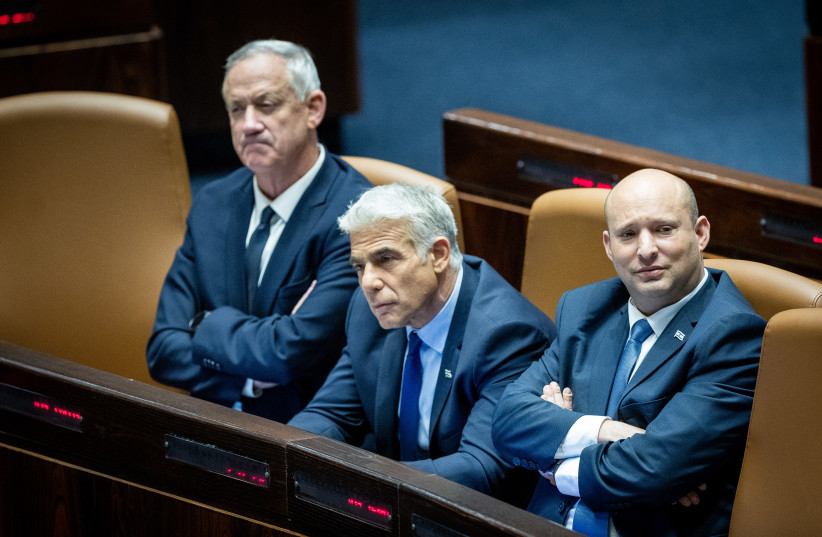For the fifth time in 3½ years – and barring the unlikely eventuality of 61 Knesset members voting for Benjamin Netanyahu to replace Naftali Bennett in a constructive vote of no-confidence that would make him prime minister again – the country is barreling toward new elections.
The upcoming elections would be the nation’s 25th Knesset election in its 74 years. That’s quite a lot. But what’s even more telling, 11 of those elections have taken place in the last 26 years going back to 1996. By comparison, “only” 13 elections were held in the 48 years before that.
In other words, while Israel has never been an island of political stability, the last 26 years, and especially the last three and a half, have been especially wobbly.
According to the Israel Democracy Institute, if elections are indeed held in the fall, Israelis will have gone to the polling booths since 1996 on an average of every 2.4 years, placing last in election frequency among 21 parliamentary democracies surveyed. And this includes countries known for chronic political instability such as Italy, Greece, Spain and Japan.
Put aside for a minute the obvious: that good governance, with a degree of policy consistency, is difficult under such circumstances. There is another even more negative consequence of such constant government changes and elections: they sow deep divisions.

Election campaigns, and this is an understatement, do not bring out the best in people. Candidates run less on what they have to offer and more on why the other side would spell disaster. Election campaigns all over the world accentuate divisions and pit one sector of the population against the other. Election campaigns trade in disunity.
In some countries, such as the US where presidential elections are spaced four years apart, there is ample time – or at least there had been in the pre-Trump days – for the nation to heal from one divisive presidential campaign, before moving on to the next.
Not here. In Israel, the country is just starting to bounce back from the divisions highlighted by the last elections, and it is now time for yet another.
If recent history is any indicator, in the upcoming campaign the Left will be portrayed as lily-livered defeatists, and the Right as wannabe fascists. Haredim will be portrayed as parasites, religious Zionists as wild-eyed messianists, and Arabs as supporters of terrorism. That’s all hyperbole, but hyperbole is the currency of election campaigns. Don’t suffice with saying how good you are, but rather pound on how bad and scary and dangerous the other guy is.
However, if you hear over and over again how bad and scary and dangerous the other guy is, such as during an election campaign for the fifth time in 3½ years, you may tend to believe it. That is not good or healthy for the country. Emphasize the divisions often enough, shine a light on them continuously, and they will just grow and grow.
This is why as the parties embark on yet another campaign, we entreat them to dial down the rhetoric and to keep in mind that the day after the votes are counted there is a nation here – a very diverse nation that needs to live and work together. Don’t pit one sector against the other during a campaign. Don’t demonize and delegitimize, and then expect that everyone can forgive and forget and put all that behind them after the voting ends.
One of the exceptional things about the Bennett-Lapid government that is now on its way out is that it tried to fight back against this trend. It tried to show that ideological rivals – the Left, the Right, religious, secular, Arabs – need not be enemies, but can actually work together for the common good.
This government broke the mold in coalition building and created a new one. It didn’t last long, only a year, but it did create a new paradigm. It showed that other ways of running the country are possible, including doing so with people who ideologically agree on little and whose world views are far apart.
We hope that not only does this spirit not fade with the collapse of this government, but that the idea that one’s political rival is not one’s enemy somehow seeps into the upcoming campaign.
